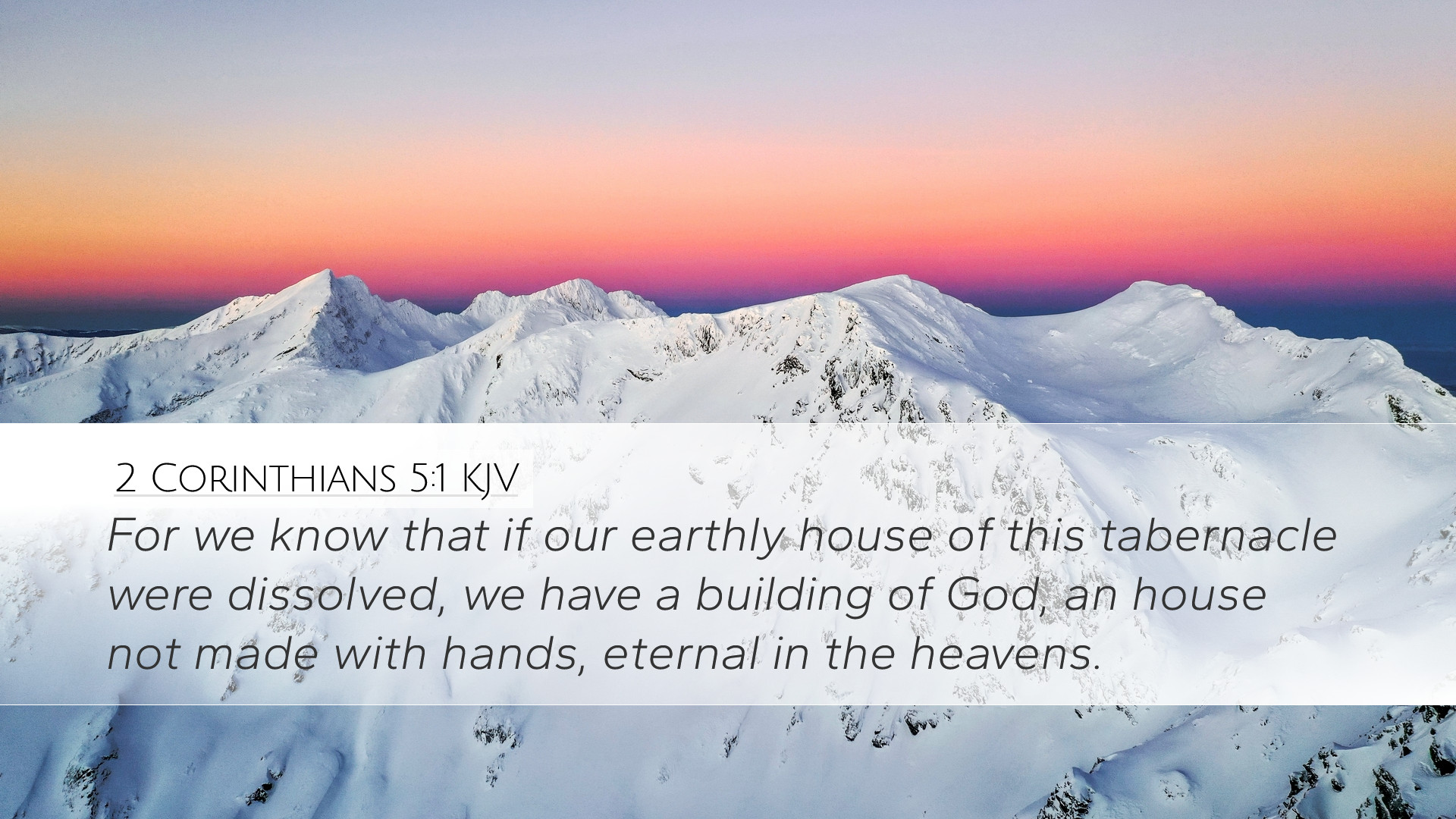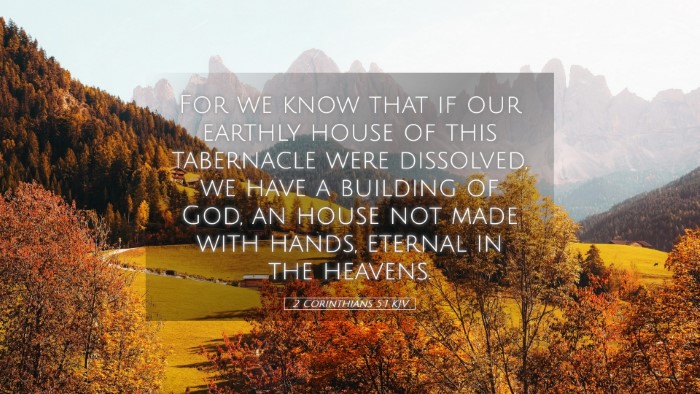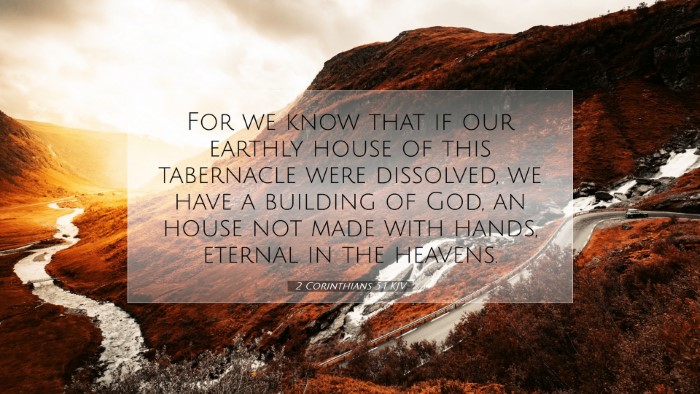Commentary on 2 Corinthians 5:1
In 2 Corinthians 5:1, the Apostle Paul presents a profound theological truth regarding the nature of our earthly existence and our eternal hope. The verse reads: "For we know that if our earthly house of this tabernacle were dissolved, we have a building of God, a house not made with hands, eternal in the heavens."
Context and Background
This scripture is situated within a rich tapestry of Paul’s discourse about suffering, comfort, and the transient nature of life. It is part of a broader argument where Paul emphasizes the suffering of this present time in contrast to the glory that awaits believers (cf. Romans 8:18). In this context, Paul likens our mortal bodies to a “tabernacle”, or tent, which is temporary and fragile.
The Nature of Our Earthly Bodies
Paul’s use of the term "earthly house of this tabernacle" evokes images of impermanence. As Matthew Henry notes, our physical forms are indeed vulnerable; they are susceptible to decay and death but serve as a dwelling place for the spirit. This metaphor not only denotes transience but also suggests a divine intention—our earthly bodies are designed to be temporary.
Key Insights from Commentators
-
Matthew Henry:
Henry elaborates on the concept of the body as a tent, highlighting its provision for shelter but ultimately the necessity for a superior home. The tabernacle is a fitting metaphor for life on earth—fragile and easily taken down, yet functional for the time being.
-
Albert Barnes:
Barnes emphasizes the knowledge component—"For we know..."—indicating that Paul speaks with an assurance derived from faith. This internal certainty provides believers with comfort amid suffering, suggesting that understanding our divine destiny gives purpose to our earthly experiences.
-
Adam Clarke:
Clarke points to the contrast between the present state of believers and their future hope. He highlights the assurance of "a building of God, a house not made with hands." This assurance fosters a longing for the eternal which is alien to worldly living.
The Eternal Perspective
Transitioning from the metaphor of the transient body to a "building of God," Paul articulates a hope that transcends the physical. This eternal dwelling is characterized as being not made with hands, suggesting a divine origin and the permanence of God’s creation.
Character of the Eternal House
-
Construction by God:
This construction underscores a divine purpose and sovereign creation, contrasting human limitations and imperfections with the perfection, durability, and glorious nature of what God prepares for believers.
-
Heavenly Assurance:
Clarke asserts that this new dwelling is awaiting all true believers, providing not only hope for the future but also a call to live in accordance with that eternal existence here and now.
Application for Believers
These verses encourage believers to adopt an eternal perspective in life. The temporal challenges and challenges of the earthly experience should not overshadow the hope of an eternal future.
Living with Hope
As noted by Henry, understanding the temporary nature of our current bodies should inspire us to focus on the eternal. This perspective fosters resilience during trials, reaffirming that our present sufferings carry no comparisons to the eternal weight of glory (2 Corinthians 4:17).
Encouragement for Pastors and Students
This verse invites pastors and students of the Word to reflect on both the promise of eternal life and the present reality of earthly existence. It encourages a ministry of comfort grounded in the assurance of what lies ahead—but it also compels a calling to engage actively in the present.
Conclusion
2 Corinthians 5:1 serves as a powerful reminder of the Christian hope. Through the insights of esteemed commentators, we are called to embrace our identity as temporary inhabitants of this world with an eye fixed toward the glorious future prepared for us by God. As we navigate our earthly journey, may we hold onto the promise of our eternal home and live in light of that blessed hope.


